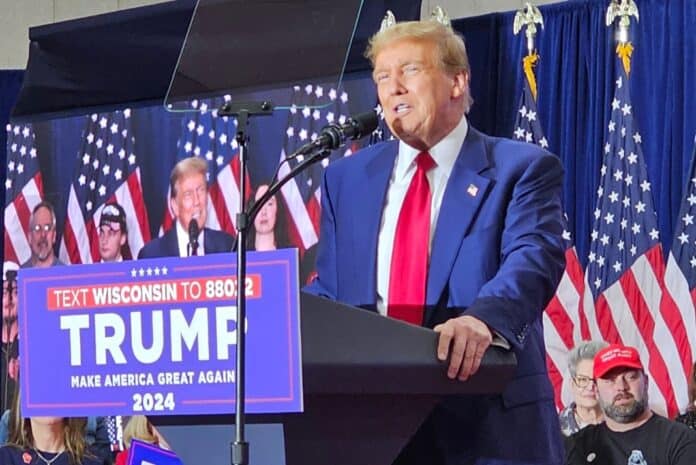State prosecutors rested their case against former President Donald Trump on Monday, capping off four weeks of testimony from 20 witnesses.
The first-ever trial of a former President was one step closer to a conclusion after prosecutors concluded their case Monday. Next up: Trump’s attorneys will get a chance to present their defense. The case centered around Trump’s alleged sexual encounter with an adult film actress in 2006 and a $130,000 payment to her in 2016 to keep her quiet ahead of the 2016 election. Trump has pleaded not guilty and denied the encounter happened.
Prosecutors allege that Trump covered up the payment to Stormy Daniels and another hush money payment to former Playboy model Karen McDougal ahead of the election and covered them up as legal payments.
Trump, 77, is the first former U.S. president to be charged with a felony.
Manhattan District Attorney Alvin Bragg charged Trump with 34 counts of falsifying business records related to money paid to Daniels and McDougal. Bragg has alleged Trump broke New York law when he falsified business records with the intent to commit or conceal another crime.
Prosecutors allege Trump falsified internal records kept by his company, hiding the true nature of payments that involve Daniels ($130,000), McDougal ($150,000), and Trump’s former personal lawyer Michael Cohen ($420,000). Prosecutors allege the money was logged as legal expenses, not reimbursements. Both Cohen and Daniels testified during the trial.
Daniels detailed the alleged 2006 sexual encounter and testified she “blacked out.” She also said Trump didn’t wear a condom. Defense attorneys asked for a mistrial after that testimony, which they argued was prejudicial.
Judge Juan Merchan denied that motion and repeatedly fined Trump for his comments and social media activity outside of the courtroom. Merchan ordered Trump to pay a total of $10,000 for violations of the gag order.
The gag order remains in place. Trump, the nation’s 45th president, is prohibited from making or directing others to make public statements about the jurors, witnesses, attorneys, court staff, district attorney staff and family members of staff.
It is not clear if Trump plans to take the stand in his own defense. He previously said he would take the stand if necessary.
Under New York state law, falsifying business records in the first degree is a Class E felony that carries a maximum sentence of four years in prison.
In late March, Trump said that he wasn’t worried about a conviction when asked if he thought a conviction could hurt his chances of returning to the White House.
“It could also make me more popular because the people know it’s a scam,” he said. “It’s a Biden trial, there is no trial, there’s a Biden trial.”
Whatever happens during the trial, Trump will be protected by the U.S. Secret Service.
Even if convicted and sentenced to jail, Trump could continue his campaign to retake the White House.
“The Constitution does not bar felons from serving as President,” said Richard Hasen, professor of law and political science at the University of California, Los Angeles.
Trump could not pardon himself from any state charges, Hasen said.
Brett Rowland
Go to Source
Reposted with permission







![Protecting Portland: No Good Deed Goes Unpunished [REVIEW]](https://www.wisconsinrightnow.com/wp-content/uploads/2025/07/portland-356x220.jpg)























